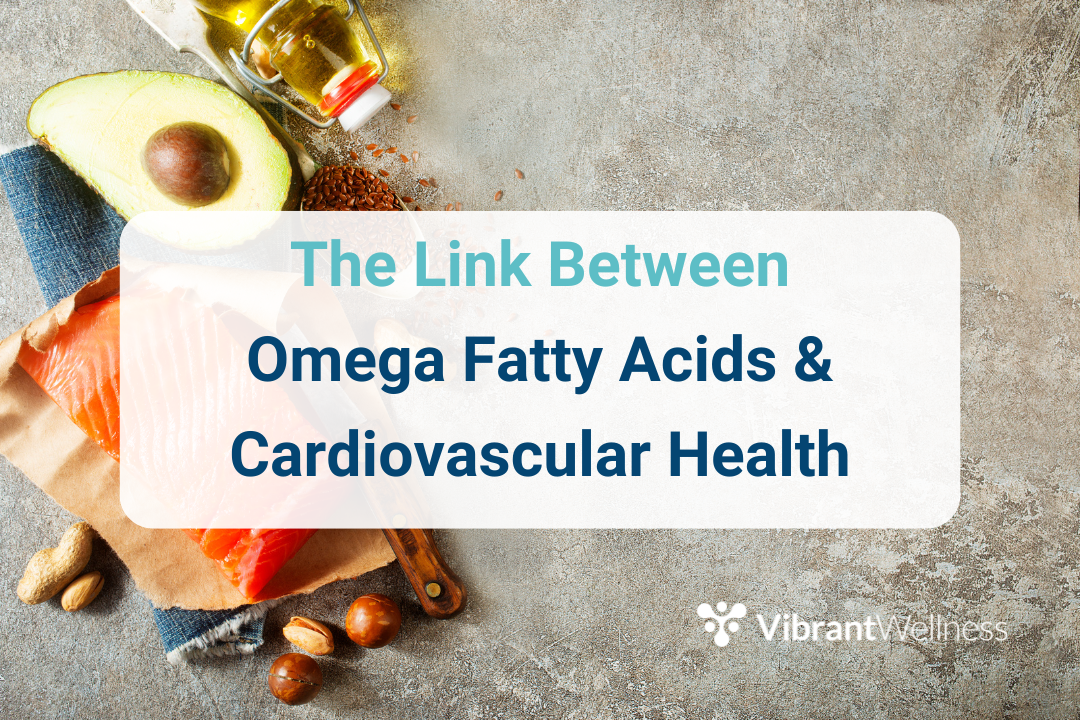How to Develop a Cardiac Health Food Plan
Each year, cardiovascular diseases are linked to 17.9 million deaths worldwide.1
You can help your patients improve and protect their heart health with an anti-inflammatory nutrition plan featuring nutrient-rich cardioprotective foods.
Use this Cardiac Health Food Plan as a starting point to build a personalized wellness plan to help your patients prevent cardiovascular disease, alleviate symptoms, and take control of their health.
Provide Personalized Care with Cardiac Health Diagnostics
In the U.S., every 34 seconds, someone has a heart attack, and every 60 seconds, someone dies from a heart disease-related event.2
Test—don't guess—your patients risk of heart disease with the following advanced functional lab tests:
- Cardiac Health Panel
- Chronic Inflammation Panel
- CardiaX
- MTHFR
Read more about cardiac health testing in the table below:
Cardioprotective Foods to Incorporate

Cardioprotective foods are those that reduce the risk of cardiovascular disease. These include antioxidant-rich fruits and vegetables, fiber-rich whole grains, low glycemic index carbohydrates, and omega-3 fatty acids.
Antioxidants
Antioxidants found in fruits and vegetables help prevent oxidative damage to cells caused by free radicals in the body. This protects the body against inflammation linked to heart health risks.
Examples of antioxidant-rich foods include:
- Sweet potato
- Asparagus
- Broccoli
- Arugula/Roquette
- Onion
- Spinach
- Apple
- Kiwi
- Plums
- Beans
- Edamame
- Oats (rolled, steel-cut)
- Barley
- Hazelnuts
- Chia seeds
- Flaxseeds
- Avocado
- Coconut oil
- Cinnamon
- Dill
- Cocoa (70% or higher)
- Black tea
Fiber

Fiber-rich foods can help lower cholesterol levels, reducing the risk of developing heart disease. High-fiber foods have also been shown to reduce blood pressure and inflammation, further supporting heart health.
Examples of fiber-rich foods include:
- Parsnips
- Artichokes
- Collard greens
- Jicama
- Apple
- Figs
- Strawberries
- Beans
- Soybeans
- Oats (rolled, steel-cut)
- Teff
- Rye
- Kamut
- Sweet chestnut
- Chia seeds
- Flax seeds
- Psyllium
Low Glycemic Index (GI) Carbs

Examples of low-glycemic foods include:
- Carrots
- Kidney beans
- Chickpeas
- Lentils
- Cauliflower
- Walnuts
- Blueberries
- Cherries
- Rolled oats
- Sweet potato
- Eggs
- Salmon
- Trout
- Beef
- Chicken
- Pork
- Cashews
- Zucchini
- Celery
- Kale
- Quinoa
- Cow, goat, or sheeps milk
- Greek yogurt
- Barley
- Chia seeds
- Olive oil
- Basil
- Ginger
- Cinnamon
- Coconut water
- Cocoa (70% or higher)
Omega-3 Fatty Acids

Examples of foods rich in omega-3 fatty acids include:
- Soybeans
- Edamame
- Fish: Alaskan pollock, anchovy, carp, cod, salmon, tuna, etc.
- Clams
- Oysters
- Blue Mussels
- Walnut halves
- Chia seeds
- Flax seeds
- Hemp seeds
- Flaxseed oil
- Hempseed oil
Eliminate Pro-Inflammatory and High-Glycemic Foods
In addition to incorporating cardioprotective foods, your patients should avoid highly processed foods with high levels of pro-inflammatory fats and a high glycemic index to further protect their heart health.Examples of foods to avoid include:
- Fried foods
- Sugary snacks and drinks
- Red meat
- Refined carbohydrates such as white bread or pasta
Avoid Processed Foods

Ultra-processed foods can increase the risk of heart disease due to harmful fat, sugar, and salt content.
These foods also lack components that support heart health, like fiber, vitamins, and minerals.
Additionally, processed foods contain preservatives and other additives which can contribute to weight gain, prediabetes, and inflammation, all detrimental to heart health.
Highly processed foods include fast food, frozen dinners, and soda.
Avoid Foods High in Pro-Inflammatory Fats

Foods high in saturated fats are problematic for heart health because they can cause a buildup of cholesterol in the arteries.
Saturated fats raise LDL (low-density lipoprotein) cholesterol levels, increasing the chance of heart disease and stroke.
Examples of foods high in pro-inflammatory fats include bacon, non-dairy creamers, hot dogs, and sausages.
Avoid High Glycemic Index Foods

Foods with a high glycemic index are carbohydrates that raise blood sugar quickly upon consumption.
These foods can negatively affect heart health because insulin release becomes unstable when blood sugar levels rise rapidly; this can cause cravings and overeating.
When high-glycemic foods are eaten frequently, it can lead to weight gain and insulin resistance, which increases the risk of cardiovascular disease.
Examples of high-glycemic foods include white rice, breakfast cereals, and pastries.
Additional Guidelines for Heart Health

To further support your patients, provide these additional guidelines for heart health.
Choose Organic and Non-GMO Foods
Minimize exposure to environmental pesticides, herbicides, and fungicides.
Organically grown, non-GMO foods promote heart health as they contain fewer synthetic chemicals such as pesticides, herbicides, and fungicides. These chemicals can increase inflammation in the body and are linked to health risks, including cardiovascular problems.
Emphasize Diverse, Colorful Foods
Colorful foods increase antioxidants, phytonutrient compounds, and diversity in the diet.
Eating an organic, non-GMO diet rich in antioxidants, phytonutrient compounds, and a diverse array of healthful foods can help support heart health and reduce the risk of cardiovascular disease.
Try Nutrient Optimizing Cooking Methods
Increase nutrients in food by focusing on preparatory & cooking methods such as:- Sprouting grains, nuts, and seeds: Sprouting grains, nuts, and seeds helps make their nutrients easier to absorb.
- Steaming, braising, baking & roasting (avoid high heat), and pressure cooking (particularly for legumes): Steaming or braising vegetables rather than frying them or cooking with high heat is another way to maintain their health benefits. Pressure cooking legumes help break down their anti-nutrients which can interfere with nutrient absorption when eaten raw or cooked without pressure.
- Choosing fresh or frozen foods: Fresh and frozen fruits and vegetables maintain their optimal nutritional value and health benefits.
How Food Sensitivities Can Affect Cardiac Health
To further protect your patients’ heart health, consider how food sensitivities may affect their cardiovascular system. Food sensitivities can trigger a generalized immune reaction and increase inflammation throughout the body, including within the heart.
This can raise the risk of health problems such as a stroke or heart attack. Identifying food sensitivities your patients may have is vital to avoiding inflammatory trigger foods and protecting heart health.
Consider the following tests to assess food sensitivities:
- Wheat Zoomer
- Corn Zoomer
- Grain Zoomer
- Soy Zoomer
- Egg Zoomer
- Dairy Zoomer
- Lectins Zoomer
- Seafood Zoomer
- Mammalian Milk Zoomer
- Peanut Zoomer
- Nut Zoomer
- IgA + IgG Food Sensitivities
- IgG4 + C3D Food Reactions
- IgE Allergies
Read more about food sensitivity testing options in the table below:

Combining these cardioprotective nutrition strategies with lifestyle changes and advanced functional testing can help your patients protect and improve their heart health and discover the root of their symptoms—enabling vibrant health and longevity.
Download the printable Cardiac Health Food Plan to give your patients an easy-to-use blueprint for transforming their cardiovascular health.
References:
1https://www.who.int/health-topics/cardiovascular-diseases
2https://www.cdc.gov/heartdisease/facts.htm
 By
By




